- Home
- Kathryn Le Veque
A Wolfe Among Dragons_Sons of de Wolfe Page 5
A Wolfe Among Dragons_Sons of de Wolfe Read online
Page 5
Morys was, if nothing else, a man who could stir crowds. He had a magnetic presence and a natural air of command that made men take notice of him and as he spoke most passionately, the men were naturally drawn to what he was saying. One of the men shouted the obvious question.
“Why, lord?” the man demanded. “Tell us of Blayth!”
Morys pointed to Blayth. “See his head?” he shouted. “See the damage to his head? The Saesneg did that. They tortured the poor lad and tried to burn the Welsh right out of him, but they could not do it. They could not destroy his Welsh heart!”
The men in the room, Cader and Howell included, were looking seriously at Blayth, who was solely focused on Morys. It was as if there was no one else in the room, oblivious to an entire room of men staring at him. Enjoying the fact that he had everyone’s attention, Morys continued.
“The Saesneg tried to destroy him,” he said passionately. “They tried to destroy his heart, because it is a pure Welsh heart. The Saesneg knew who he was, but those loyal to Cymru smuggled him out of his prison and gave him over to me. These men, these smugglers, were old and beaten, because they were the teulu of our greatest warrior. They knew who Blayth was and they entrusted his care to me.”
By this time, Howell had made his way over to Morys. He was still standing on the worn and beaten feasting table, but he climbed down in order to be at Morys’ level.
“We have all wondered where Blayth came from,” he said. “From the looks of him, it makes sense that the English tortured him.”
Morys nodded, putting a hand on Howell’s shoulder. In truth, Morys was enjoying the performance of a lifetime because, for his own glory, he had to sell this. The man with no sons, and no children at all, had to cement legacy. It all rested with a story he’d spent years building about a wounded warrior who had no memory.
Morys would provide him with that memory.
“The Saesneg captured Blayth at a very young age and kept him in their prisons,” he said. “It was the loyal teulu of Llywelyn ap Gruffydd that freed Blayth from the Saesneg. That is because the English knew, as you will now know, that Blayth the Strong is, in truth, Blayth ap Llywelyn. He is the bastard son of the last Prince of Wales, Llywelyn ap Gruffydd.”
A collective gasp went up in the group. No one had been expecting that answer, least of all Howell or even Cader. They looked at each other in shock before Howell returned his attention to Morys.
“He… he is Llywelyn’s son?” he said, incredulous. “But – how? We have not heard of such a child of Llywelyn. He only had a daughter, and she has long been a ward of the Saesneg. Now you are saying that the man had a son?”
Morys nodded confidently. “Blayth was sold by his whore of a mother to the Saesneg,” he said. “The bitch sold her child for gold and the Saesneg took him to their great city, to their great Tower, and there he has been his entire life. Men believe he is a Saesneg because of it, but that is not true. He was freed and brought to me to protect him, and it is Blayth who shall lead our countrymen to victory against Edward. Who else but a man who has been tortured and wronged to lead the charge against those who tried to destroy him?”
It made perfect sense to the Welsh, who were increasingly excited about what they’d been told. A buzz filled the room as men began to speak of the unknown bastard son of Llywelyn the Last, but the conversation wasn’t entirely positive. There were those who were not thrilled by such news.
“Llywelyn was a northern prince,” one older man shouted. “His gain was only for the north. Why should we want his bastard for us?”
Morys suspected that might be an issue, but he would not allow old prejudices to mar his glory seeking. “Llywelyn may have been a northern prince, but he fought for all of Wales,” he said. “He did what was necessary to secure our country for north and south. Now that we have his bastard in our midst, a man who has already proven that he has greatness in his blood, would you truly allow old hatreds to ruin our chance to take back our country from the Saesneg? It is a very real possibility, now that we have Blayth among us. Would you deny a Welsh prince his destiny?”
Of course, no one would. Wales was full of history of Welsh princes fighting the English, and sometimes each other. But England was the greater threat and they were all united against it.
Now, they had renewed hope.
It was almost too good to be true, but gradually, men began to realize the opportunity that was presented. Morys ap Macsen was a passionate patriot and the men trusted him. Over the past few years, Blayth’s record on the battlefield spoke for itself. He was a fierce warrior, fearless in the face of the enemy, and his reputation had been cemented. Surely such a man could have only sprung from Llywelyn’s loins.
And now, he would fulfill his destiny.
At that point, there were no more voices of protest. In truth, it was a thrilling prospect. But standing next to Morys, Howell’s reaction was decidedly different. He couldn’t decide if he believed Morys or not. He knew the man; he was a teller of tall tales, but he was also a fearsome warrior and deeply dedicated to Wales. As the men of the hall began to take up a cheer for Blayth, Howell grasped Morys by the arm.
“Swear this to me,” he muttered. “Swear to me that all you have said is true.”
Morys looked him right in the eye. “It is true.”
Howell shook his head, still torn. “Then why have we never heard of Llywelyn’s bastard? No one has ever spoken of a bastard son.”
Morys was completely confident in his answer. “I told you,” he said patiently. “His mother was a servant and she sold the lad when he was but an infant. Do you truly think she would then tell everyone that she sold Llywelyn’s son to the English?”
Howell glanced at Blayth, standing like a massive sentinel behind Morys. He was pale, scarred, and every inch the seasoned warrior. If one wanted to believe that he was from Llywelyn’s loins, then it would be easy to do so. Men seeking hope, something to cling to, would be willing to believe such a thing.
But Howell still wasn’t sure.
“But you said that Llywelyn’s teulu knew of him,” he said. “Are you telling me that in all of these years, they never once bargained for his freedom?”
Morys fixed him, pointedly. “Would you?” he asked. “The fact that the English did not kill him as an infant was a miracle in and of itself. Do you think if the teulu had tried to bargain for him, that Edward might not change his mind?”
That was the truth. Any true Welsh prince wasn’t long for this world if the English had anything to say about it. The fact that they evidently kept the man alive, and tortured him, was something beyond horrific, and Howell began to soften, just a little.
“So they knew of him,” he finally said. “Then what? Have they been tracking him all this time? The man must be forty years old. He is not a young man.”
Morys shook his head. “He is not,” he said. “And to answer your question, it is true that Llywelyn’s men spent years tracking the child who eventually became a man. Always, they kept their eye on him, even if it meant serving the English king himself. Anything to be close to him. When the time was right, they moved to free him.”
The entire situation sounded too wild to believe, and Howell still wasn’t convinced. “But why you?” he demanded quietly. “Why should they bring him to you?”
Morys lifted an eyebrow. “Because I can protect him,” he said simply. “Think on it, Howell. My father is the fifth son of a prince of Deheubarth. My cousins, like Rhys, are entrenched in fighting each other. All they want to do is kill each other. But Cader and I are not so engaged in politics, or in trying to kill each other, but we still understand the need for discretion and protection. If you want to hide a man like Blayth, then you would choose someone like me. Only I would understand the importance of Blayth, and I have kept him protected accordingly for the past five years. But now… now, he must fulfill his destiny and I must help him. Surely you can understand this.”
Some of what he said made sense, but Howell was still torn. It all seemed so outlandish to him but in the same breath, it was a fantastic story that he wanted to believe. He wanted to have faith. The cries of the men in the hall were growing now as the warlords began to understand that a great man was among them and Howell looked around, knowing that if he were to publicly dispute Morys’ claim, it would only tear apart the group as a whole. And for what they were about to do, this group needed to be cohesive. If a man they believed to be the bastard son of Llywelyn the Last was the adhesive, then so be it. It was with misgivings that Howell let the subject drop.
But he knew, instinctively, that wasn’t going to be the end of it. When he sent his missive to Bhrodi de Shera, he would make sure to mention Llywelyn’s bastard. It would either cement the matter, or complicate it.
Asmara, who had been standing by the hearth during the entire conversation between Howell and Morys, could hardly believe her ears when she heard her uncle’s revelation. She heard the shouting and the buzz of the men but, unfortunately, she couldn’t see the warrior that had the entire room rumbling with shock.
Blayth the Strong.
Nearly dry from the heat of the hearth, and coughing on the smoke she couldn’t avoid, Asmara finally stepped away from the fire as she tried to get a look at the man known as Blayth, who was evidently, in reality, the bastard of Llywelyn the Last. It was an astonishing disclosure. She tried to push between the men to get a look at him, but the men were standing in tight groups and wouldn’t move. They didn’t like a woman trying to push them around, anyway, so she ended up skirting the room, making her away along the walls until she caught sight of her father standing near the feasting table.
Then, she was more assertive pushing through the crowds of men, shoving them aside until she reached her father’s teulu, who moved aside for her easily. Once she came to stand next to her father, she had a clear view of the table and of her Uncle Morys on the opposite side. She tugged on her father’s sleeve.
“I heard what Morys said,” she said, leaning in to him. “Where is Blayth?”
Cader glanced at her. “Where have you been?” he asked. Then, because she was butted up against him, he couldn’t help but notice that she was damp. “What happened to you? Why are you wet?”
Asmara was too ashamed to tell him. “It is nothing to worry over,” she said, trying to distract him. “Dadau, Fairynne is here. She followed us even though you told her not to.”
As Asmara had hoped, her father’s attention veered away from her wet clothing and on to his disobedient daughter. “Where is that foolish chick?” he said in a rare display of emotion. “She will sorely regret having disobeyed me. Where is she?”
Asmara shrugged. “I do not know,” she said. “That last I saw, she was heading for the stables.”
Cader sighed heavily. “I am going to make it so she’ll have to walk home because her arse will be too sore to ride.”
Asmara didn’t care much about her sister at that point; this was a discussion they had about her frequently, so it was nothing new. Increasingly, she was curious about the warrior known as Blayth, the man whose true identity had been revealed, so she strained to see over near Morys, who was still lauding the lineage of his greatest warrior.
“Morys’ voice carries all the way over here,” she said, disapproval in her tone. “Who is Blayth, Dadau?”
Cader was still lingering on his youngest, and naughtiest, daughter, but he managed to point in Morys’ direction. “There,” he said. “See the big brute standing behind your uncle? The one with the scarred head?”
Scarred head. A bolt of shock ran through Asmara as her gaze fell on the pale warrior she’d tangled with earlier. Her mouth popped open with astonishment when she realized who her father meant.
“Him?” she asked, aghast. “That… that beast of a man?”
“Aye.”
“That is Blayth?”
“Aye.”
Asmara’s mouth was still hanging open as she came to understand what her father was telling her. Truly, it took a moment to sink in; the man with the slow, deliberate speech, the one who had looked at her with eyes that seemed to look right into her soul, was none other than the mysterious warrior known as Blayth the Strong.
Good Christ… was it actually true that the man was a bastard of royal blood in disguise? It was all so overwhelming. Shocking, for certain. Now, Asmara didn’t know whether to feel privileged or embarrassed that Llywelyn’s bastard had thrown her in the trough.
She settled for embarrassed.
“What now?” she asked, averting her gaze from the warrior across the hall. “Do we fight with him, Dadau? Is that what we shall do?”
Cader nodded. “It would seem we are to be part of a resurgence of rebellion,” he said. “Morys has stirred the hearts of men with his tale of Llywelyn’s bastard. Can you not see that?”
Asmara looked at the men around them, men who were shouting their excitement for what was to come. There was indeed rebellion in the air now that the situation had been explained to them – Howell had proposed the plan and Morys had sealed their fates with his talk of a new hero among them. Indeed, Asmara could see what was coming. She looked at her father.
“Do you believe Morys?” she asked.
Cader was certain that men were listening to her question and even more certain that they were interested in his answer. He could not, and would not, go against his brother, even if he did have misgivings. Sometimes, there were things more important than the truth and, much like Howell, he would not tear this group apart by disputing Morys’ claim. He could see that Morys’ words were like a tonic to men who had been so beaten down by wars with the English, and oppression, that the mere mention of a new hero to lead them was feeding them all with renewed hope.
He couldn’t take that away from them.
After a moment, he turned to his daughter.
“I will not question him,” he said. “For now, I want you to find your sister and keep her with you. It is too dangerous for her to wander about with all of these men. Both of you will retreat to the stables and remain with the horses while I speak with Howell and my brother. I must discover what they intend for us to do in this plan to assist Rhys ap Maredudd, so you will wait for me whilst we have our war council. Go, now.”
Asmara didn’t want to leave, not with battle plans to be discussed, but she decided to respect his wishes by obeying him. It was one thing to dispute her father when no one was watching, and entirely another to do it in front of a room of cymry. She would not shame her father so. But before she departed, she spoke quietly.
“Whatever happens, Dadau, I will ride with you,” she said. “Swear this to me. If you do not, I will follow you into battle. You will not go without me.”
Cader looked at her. He knew she meant every word. “Nay,” he said after a moment, reluctance in his tone. “I will not go without you. I have fought many a battle with you and your skill with a bow, so I do not plan to leave you behind. You are valuable to me.”
“And Fairynne?”
“She is not so valuable, but do not tell her that. In fact, do not tell her anything about this. I shall tell her myself.”
“Aye.”
When she turned to leave, he grasped her arm to stop her. “Can you tell me when you plan to stop being a warrior and start being a woman?” he asked. “I should like to have grandsons and that will not happen so long as you can outshoot most men with your bow. Men do not like to be humiliated so.”
Asmara grinned at her father, who simply shook his head in resignation. He knew her answer without hearing her answer; it was always the same. Someday, Dadau, but not today. Releasing her, Cader’s thoughts lingered on his strong, intelligent daughter, realizing that, yet again, they would soon be heading into battle. Only the coming battles, he suspected, would be unlike anything Asmara had experienced in the past. She’d fought in ambushes, and in the siege of Weobley Castle when the English tried to build stone fortifications. She was cool under fire, possessing her father’s innate sense of calm, and she was quick-thinking and resourceful. Cader had seen it. But, God, he didn’t want to take his beloved daughter into the coming battles against English who wouldn’t care if she was a woman. They’d kill her regardless.
But he knew he couldn’t make her stay at home with her mother, either.
With some concern for the future, but resigned to what was to come, Cader made his way over to Howell and Morys to discuss the coming plan of attack.
God help them all.
PART TWO
A MAN AND HIS DESTINY
CHAPTER FOUR
Two weeks later
Llandarog Castle, eight miles east of Carmarthen Castle
The heavens had opened up and hell had poured forth.
The summer had been unseasonably wet and, true to form, storm upon storm had rained across the area for the past two weeks. The storms had been cold, too, and the feeling in the air was very much like autumn or even a cold spring.
But it wasn’t something that bothered the Welsh. Wales could be wet even in the best of times, so they were used to the discomfort of constant rain and the chill of the wind. The weather did nothing to dampen their spirits or their determination in what needed to be done.
The time to act was upon them.
The plan outlined at Carmarthen Castle was that the three castles in question – Llandarog, Idole, and Gwendraith – would be taken simultaneously. It was decided that the castles needed to be seized all at once to prevent the English from sending reinforcements to one or more of them.
Therefore, the Welsh fighting force in the south, comprised of about four thousand men, was split into three groups. One was led by Morys and Cader, the second by Howell and his men, and the third by another warlord named Kimble whose lands lay to the north near Cilgerran. He carried men from the mountains with him, Welshmen who fought with guerilla tactics rather than in organized groups.
In fact, given that the siege of a castle wasn’t something the Welsh normally did because they didn’t possess the big siege engines necessary for such grand operations, the smartest tactic for them to take was stealth. That was how they worked best. A head-on siege wouldn’t work on any of their targets because all three had serious defensive features, so it was decided that only a few select men would make their way into the castles to open the gates for the rest of the Welshmen to enter and engage in hand-to-hand combat with the English inside.

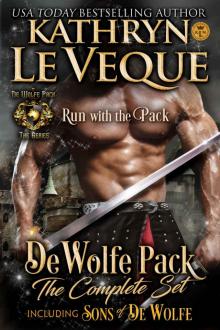 The Original de Wolfe Pack Complete Set: Including Sons of de Wolfe
The Original de Wolfe Pack Complete Set: Including Sons of de Wolfe A Very Medieval Christmas: A Medieval Romance Novella Bundle
A Very Medieval Christmas: A Medieval Romance Novella Bundle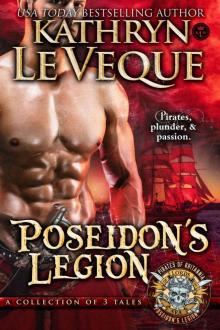 Poseidon’s Legion
Poseidon’s Legion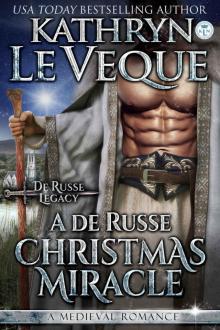 A de Russe Christmas Miracle (de Russe Legacy Book 8)
A de Russe Christmas Miracle (de Russe Legacy Book 8) Border Brides
Border Brides WolfeLord: de Wolfe Pack Generations
WolfeLord: de Wolfe Pack Generations The Centurion
The Centurion England's Greatest Knights: A Medieval Romance Collection
England's Greatest Knights: A Medieval Romance Collection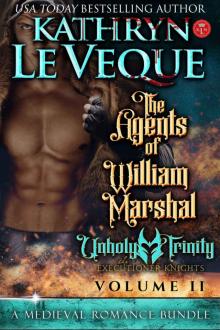 The Agents of William Marshal Volume II: A Medieval Romance Bundle
The Agents of William Marshal Volume II: A Medieval Romance Bundle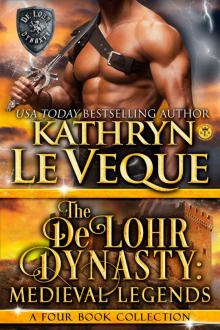 The de Lohr Dynasty: Medieval Legends: A Medieval Romance Collection
The de Lohr Dynasty: Medieval Legends: A Medieval Romance Collection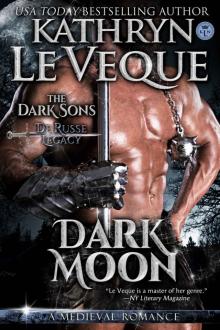 Dark Moon (The de Russe Legacy Book 6)
Dark Moon (The de Russe Legacy Book 6)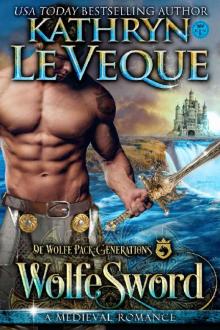 WolfeSword: de Wolfe Pack Generations
WolfeSword: de Wolfe Pack Generations WolfeBlade: de Wolfe Pack Generations
WolfeBlade: de Wolfe Pack Generations Nunnery Brides: A Medieval Romance Collection
Nunnery Brides: A Medieval Romance Collection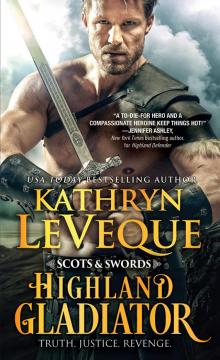 Highland Gladiator
Highland Gladiator The Age of Knights and Highlanders: A Series Starter Collection
The Age of Knights and Highlanders: A Series Starter Collection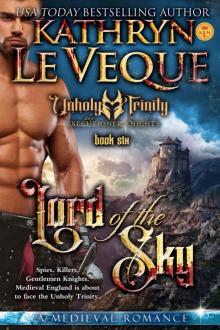 Lord of the Sky (The Executioner Knights Book 6)
Lord of the Sky (The Executioner Knights Book 6)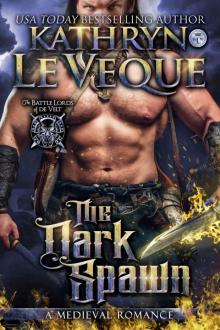 The Dark Spawn (Battle Lords of de Velt Book 5)
The Dark Spawn (Battle Lords of de Velt Book 5)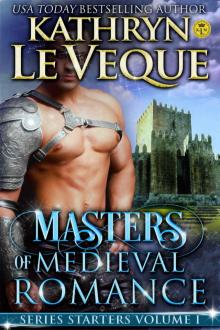 Masters of Medieval Romance: Series Starters Volume 1
Masters of Medieval Romance: Series Starters Volume 1 Highland Legend
Highland Legend Mercenaries and Maidens: A Medieval Romance bundle
Mercenaries and Maidens: A Medieval Romance bundle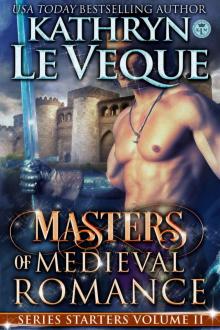 Masters of Medieval Romance: Series Starters Volume II
Masters of Medieval Romance: Series Starters Volume II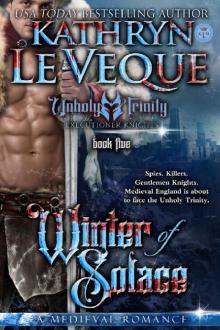 Winter of Solace (The Executioner Knights Book 5)
Winter of Solace (The Executioner Knights Book 5) Brides of Ireland: A Medieval Historical Romance Bundle
Brides of Ireland: A Medieval Historical Romance Bundle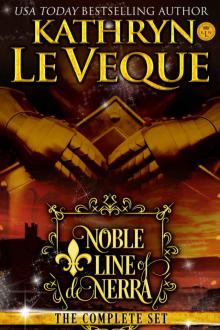 Noble Line of de Nerra Complete Set: A Medieval Romance Bundle
Noble Line of de Nerra Complete Set: A Medieval Romance Bundle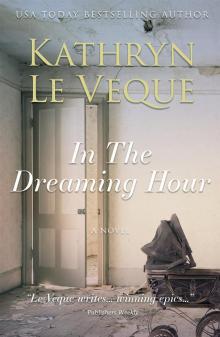 In the Dreaming Hour
In the Dreaming Hour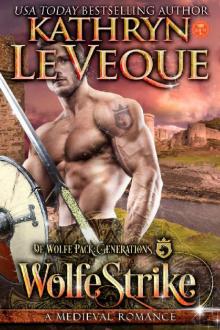 WolfeStrike (de Wolfe Pack Generations Book 2)
WolfeStrike (de Wolfe Pack Generations Book 2)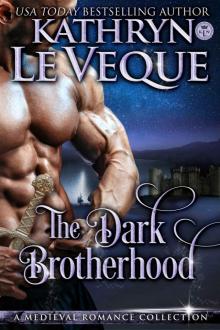 The Dark Brotherhood: A Medieval Romance Collection
The Dark Brotherhood: A Medieval Romance Collection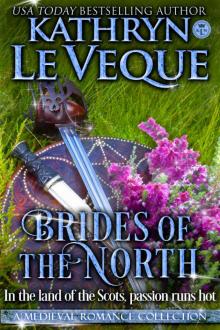 Brides of the North: A Medieval Scottish Romance Bundle
Brides of the North: A Medieval Scottish Romance Bundle A Joyous de Wolfe Christmas: A de Wolfe Sons short story (de Wolfe Pack Book 6)
A Joyous de Wolfe Christmas: A de Wolfe Sons short story (de Wolfe Pack Book 6)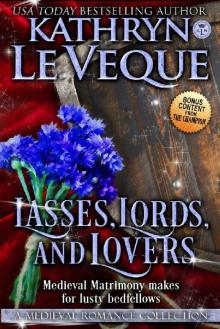 Lasses, Lords, and Lovers: A Medieval Romance Bundle
Lasses, Lords, and Lovers: A Medieval Romance Bundle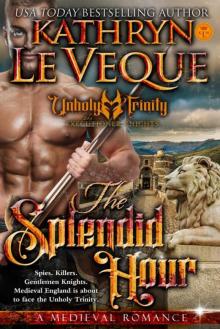 The Splendid Hour: The Executioner Knights Book 7
The Splendid Hour: The Executioner Knights Book 7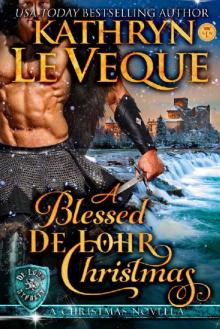 A Blessed de Lohr Christmas (de Lohr Dynasty Book 9)
A Blessed de Lohr Christmas (de Lohr Dynasty Book 9) O Night Divine: A Holiday Collection of Spirited Christmas Tales
O Night Divine: A Holiday Collection of Spirited Christmas Tales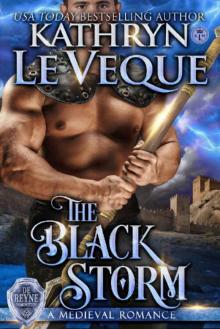 The Black Storm (De Reyne Domination Book 4)
The Black Storm (De Reyne Domination Book 4)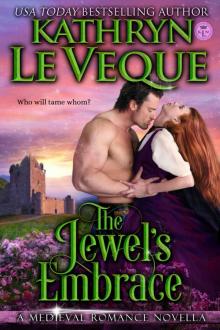 The Jewel's Embrace: A Medieval Romance Novella
The Jewel's Embrace: A Medieval Romance Novella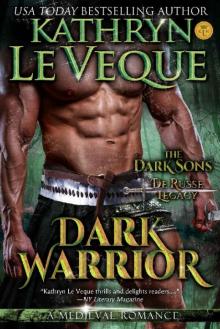 Dark Warrior (de Russe Legacy Book 9)
Dark Warrior (de Russe Legacy Book 9) Highland Defender
Highland Defender Romancing the de Wolfe Collection: Contemporary Romance Bundle
Romancing the de Wolfe Collection: Contemporary Romance Bundle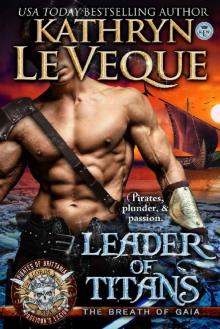 Leader of Titans: Pirates of Britannia: Lords of the Sea Book 2
Leader of Titans: Pirates of Britannia: Lords of the Sea Book 2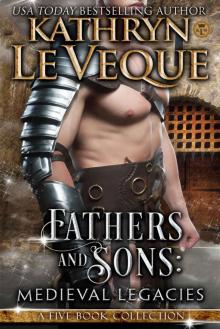 Fathers and Sons: A Collection of Medieval Romances
Fathers and Sons: A Collection of Medieval Romances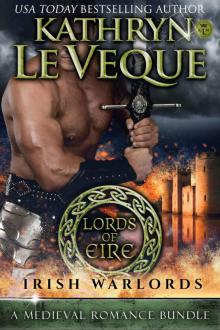 Lords of Eire: An Irish Medieval Romance Bundle
Lords of Eire: An Irish Medieval Romance Bundle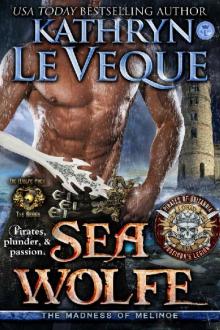 Sea Wolfe
Sea Wolfe All Things Merry and Bright: A Very Special Christmas Tale Collection
All Things Merry and Bright: A Very Special Christmas Tale Collection The Forbidden Highlands
The Forbidden Highlands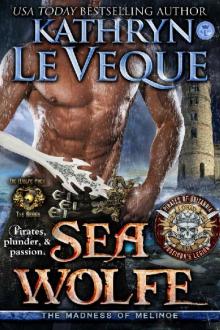 Sea Wolfe_Pirates of Britannia Lords of the Sea Book 4)
Sea Wolfe_Pirates of Britannia Lords of the Sea Book 4)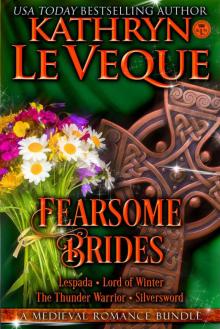 Fearsome Brides
Fearsome Brides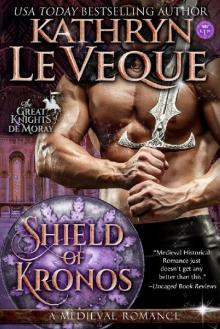 Shield of Kronos
Shield of Kronos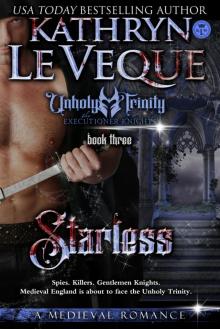 Starless
Starless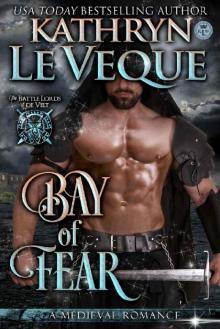 Bay of Fear (Battle Lords of de Velt Book 3)
Bay of Fear (Battle Lords of de Velt Book 3) The Red Fury
The Red Fury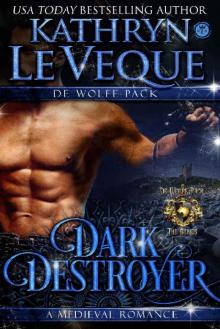 Dark Destroyer (De Wolfe Pack Book 6)
Dark Destroyer (De Wolfe Pack Book 6)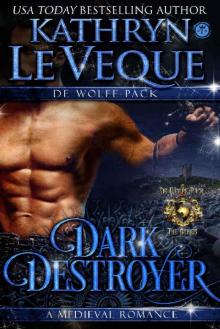 Dark Destroyer
Dark Destroyer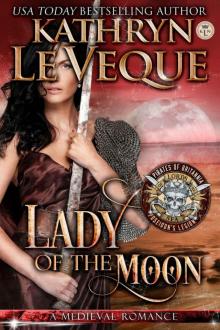 Lady of the Moon (Pirates of Brittania Book 1)
Lady of the Moon (Pirates of Brittania Book 1) Medieval Romantic Legends
Medieval Romantic Legends Medieval Ever After
Medieval Ever After Under The Kissing Bough: 15 Romantic Holiday Novellas
Under The Kissing Bough: 15 Romantic Holiday Novellas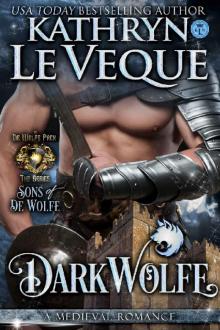 DarkWolfe: Sons of de Wolfe (de Wolfe Pack Book 5)
DarkWolfe: Sons of de Wolfe (de Wolfe Pack Book 5)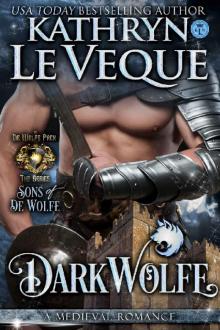 DarkWolfe
DarkWolfe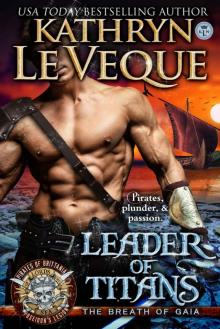 Leader of Titans_Pirates of Britannia
Leader of Titans_Pirates of Britannia Ever My Love: The Lore of the Lucius Ring (The Legend of the Theodosia Sword Book 2)
Ever My Love: The Lore of the Lucius Ring (The Legend of the Theodosia Sword Book 2) Sirens of the Northern Seas: A Viking Romance Collection
Sirens of the Northern Seas: A Viking Romance Collection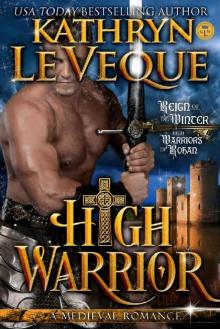 High Warrior
High Warrior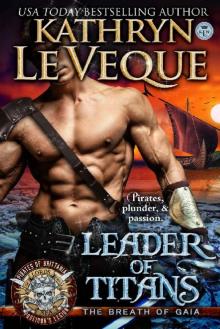 Leader of Titans
Leader of Titans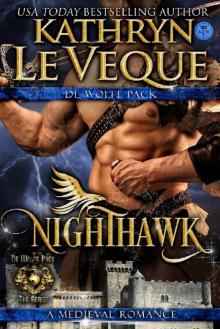 Nighthawk: Sons of de Wolfe (de Wolfe Pack Book 7)
Nighthawk: Sons of de Wolfe (de Wolfe Pack Book 7)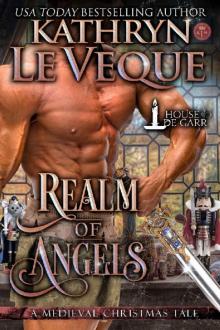 Realm of Angels
Realm of Angels Romantic Legends
Romantic Legends